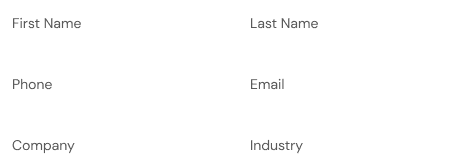Partnering with an EOR can bring numerous benefits to a company, including improved employee satisfaction and experience, flexibility and scalability, increased focus on core business activities, cost-efficiency and financial savings, and proper management of HR functions. By carefully considering their needs and goals, researching and selecting the right EOR provider, understanding contract terms and conditions, and effectively transitioning and addressing concerns, companies can maximize the advantages of using an EOR and take their business to the next level.
Definition and Role of an Employer of Record (EOR)
An Employer of Record (EOR) is a third-party organization that acts as the legal employer of your workers. This means that the EOR handles all administrative tasks, such as payroll, benefits, and taxes, on behalf of your company while you retain full control over their day-to-day work. EORs are becoming increasingly popular in today's workforce, especially among companies that hire remote workers or have a global presence.
1. Simplified Hiring Process
One of the main advantages of an EOR is the simplified hiring process. By outsourcing your administrative tasks to the EOR, you can save time and resources on recruitment and onboarding. The EOR takes care of all the necessary paperwork and legal requirements, so you can focus on finding the right talent for your company.
2. Legal and Compliance Expertise
Another significant advantage of an EOR is its expertise in legal and compliance matters. With a global workforce, it can be challenging to keep up with the ever-changing laws and regulations in different countries. However, an EOR has a thorough understanding of these laws and ensures that your workers are always compliant. This not only saves you from potential legal issues but also gives you peace of mind knowing that your business is operating within the boundaries of the law.
3. Efficient Payroll Management
Managing payroll can be a tedious and time-consuming task. However, with an EOR, you can rest assured that your workers' salaries will be processed accurately and on time. The EOR also takes care of all tax and payroll regulations, ensuring that your business remains compliant in this aspect as well.
4. Comprehensive Benefits Administration
Offering benefits to your employees is an essential aspect of any business. However, it can be a difficult task to manage and administer these benefits on your own, especially if you have a global workforce. With an EOR, you can provide benefits to your workers without the hassle of managing them yourself. Additionally, EORs offer customizable benefits packages that cater to the diverse needs of your employees, making it a win-win situation for both parties.
5. Risk Mitigation and Liability
Hiring and managing employees come with various risks and liabilities for the company. However, by utilizing an EOR's services, you can transfer these risks to them. This means that in case of any issues or disputes with your workers, the EOR will handle them on your behalf. As a result, your business is protected from potential legal liabilities, giving you more security and stability.
6. Global Expansion and Market Entry
Expanding your business globally or entering new markets is difficult, especially when it comes to employment laws and regulations. However, with an EOR, you have a partner who understands the complexities of global expansion and can help you navigate through them smoothly. This allows for a more seamless market entry process and allows you to focus on growing your business.
7. Employee Support and Satisfaction
An EOR can greatly contribute to improving your workers' overall experience and satisfaction. By handling all administrative tasks, the EOR allows your employees to focus solely on their work without any distractions. Additionally, if they have any concerns or issues, the EOR can address them promptly and effectively, creating a more positive work environment and boosting employee morale.
8. Flexibility and Scalability
An EOR offers your company flexibility and scalability. As your workforce needs change, the EOR can adapt to these changes without any hassle. An EOR provides you with the necessary support to maintain a smooth and efficient business operation regardless of the circumstances.
9. Focus on Core Business Activities
Perhaps one of the most significant advantages of an EOR is that it allows businesses to focus on their core activities. By outsourcing administrative tasks, companies can concentrate on their core competencies and improve overall productivity and efficiency. This ultimately results in a more successful and competitive business.
10. Cost-Efficiency and Financial Benefits
Employing an EOR can bring about significant cost savings for businesses. By outsourcing HR functions to an EOR, companies can reduce operational costs associated with recruitment, onboarding, benefits administration, and payroll management. Additionally, by mitigating risks and potential legal liabilities, businesses can also save on potential financial repercussions in the long run.
Considerations Before Choosing an EOR
A. Assessing company needs and goals.
Before partnering with an EOR, it is essential to assess your company's needs and goals. This will help you determine which EOR services are necessary for your business.
B. Researching and comparing EORs.
It is crucial to thoroughly research and compare different EOR providers before selecting one. Factors such as their experience, expertise, pricing, and range of services should be carefully considered.
C. Understanding the contract terms and conditions.
Before signing any contracts with an EOR, make sure to fully understand all the terms and conditions. This will ensure that both parties are on the same page and there are no misunderstandings or surprises later on.
C. Understanding the services provided by EORs.
Different EORs offer different services, so it is important to understand what specific services a provider offers before making a decision. Some may specialize in certain areas such as benefits administration, while others may offer a full range of HR functions.
D. Ensuring compatibility with company culture and values.
It is crucial to ensure that the EOR's values and culture align with those of your company. This will help foster a positive working relationship and ensure that your employees' needs are met by the EOR.
Transitioning to an EOR: Step-by-Step Guide
A. Steps involved in integrating an EOR into the existing structure
- Assess company needs and goals.
- Research and compare EOR providers.
- Select an EOR that meets your company's requirements.
- Understand the terms and conditions of the contract.
- Communicate with employees about the transition to an EOR.
- Collaborate with the EOR to transfer necessary employee information and documents.
- Provide training and provide support for employees to adapt to the new system.
- Monitor and evaluate the EOR's performance regularly.
- Communicate with the EOR about any changes or updates in your company's needs.
- Continuously assess the effectiveness and overall satisfaction of using an EOR.
By following these steps, your company can smoothly transition into working with an EOR and reap the benefits of this partnership.
Addressing Common Concerns
A. Addressing fears about loss of control and confidentiality.
One common concern about using an EOR is the fear of losing control and confidentiality of employee information. However, reputable EORs have strict privacy policies in place to protect sensitive data and ensure compliance with relevant laws and regulations. Additionally, companies can specify confidentiality requirements in their contract with the EOR.
B. Managing communication between employees and the EOR.
Another concern is the potential disconnect between employees and the EOR, as they may not have direct contact. To address this, companies should establish open communication channels between employees and the EOR, such as a dedicated point of contact or regular check-ins to ensure any concerns are addressed promptly.
Choosing to partner with an EOR can provide numerous benefits for businesses, including cost savings, scalability, and improved employee satisfaction. However, it is essential to carefully consider your company's needs and goals before making a decision and ensure that the chosen EOR aligns with your values and culture. By following a step-by-step guide and addressing common concerns, companies can smoothly integrate an EOR into their existing structure and reap the many advantages it offers. So, consider partnering with an EOR today and take your business to new heights!
Jump straight to a key chapter
Spending Too
Much Time
Onboarding?
your remote hiring in the
Philippines, excellently.
Say Goodbye to High Costs!
Request Your Free Consultation Today andSave a Massive 70% on Your Workforce!

Ready to thrive in a remote-first work environment?



